Watch for this Beauty
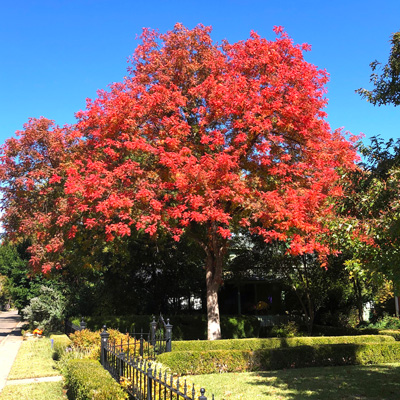
My list of the best large shade trees for Texas (all of the state) includes live oaks, Shumard red oaks, Chinquapin oaks, bur oaks, cedar elms, pecans, and one non-native species.
Chinese pistachio is a handsome, large and rounded shade tree that has really hit the big time across Texas during my career. It was unknown when I got into horticulture, and now it’s one of the best-selling species around.
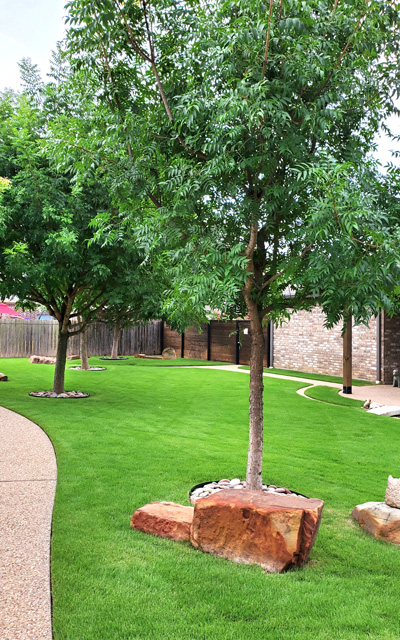
If you have a medium-sized or large landscape and want a great shade tree to put on it, consider this winner.
Here’s what you’ll want to know…
• Chinese pistachio (or Chinese pistache)
• Pistacia chinensis
• Grows to 45 ft. tall and wide.
• Foliage is dark green all summer.
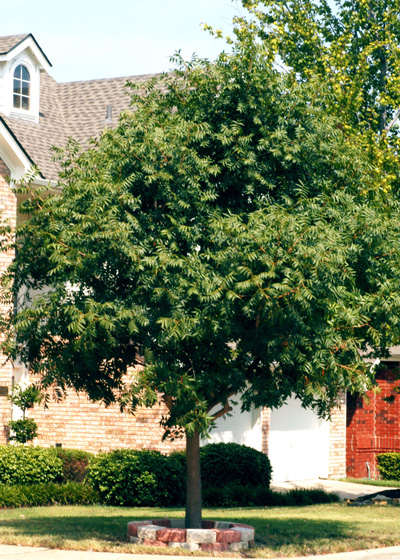
• Leaves turn brilliant shades of red, orange and yellow with cool weather in fall. Watch for that to start happening in the next 3-4 weeks.
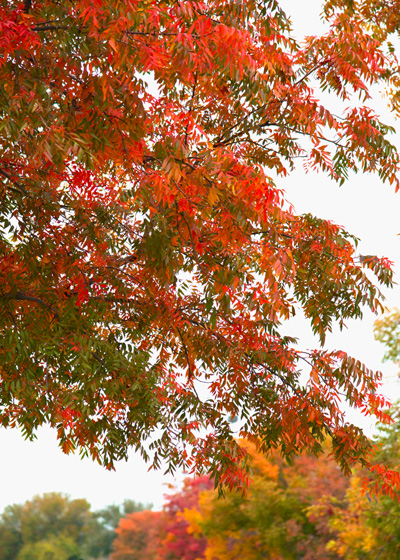
• Seedling trees produce either male or female flowers. Only female trees will produce fruit (loved by birds but can be somewhat invasive). Variety Keith Davey is a male selection, hence fruitless, but it is rarely seen in the nursery industry.
• Trees are gangly when young but be patient. Develops into attractive, rounded habit within a few years.
• Not particular as to soils, so suited to all parts of Texas.
• Available in containers ranging from 5-gallon to 200-gallon tubs.
• Fall is a great time for planting since it gives the tree 6-8 months to become established before next year’s hot, dry weather sets in.
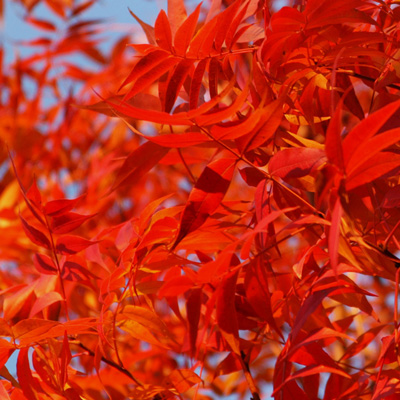
• Stake new trees to keep them plumb and taut. Leave supports in place for 18-24 months. Protect trunk from girdling or rubbing.
• Also protect trunk from sunscald by wrapping with paper or plastic tree wrap for first two years. Young trees have very thin bark, and they haven’t been exposed to Texas sun’s burning rays in the nursery.
